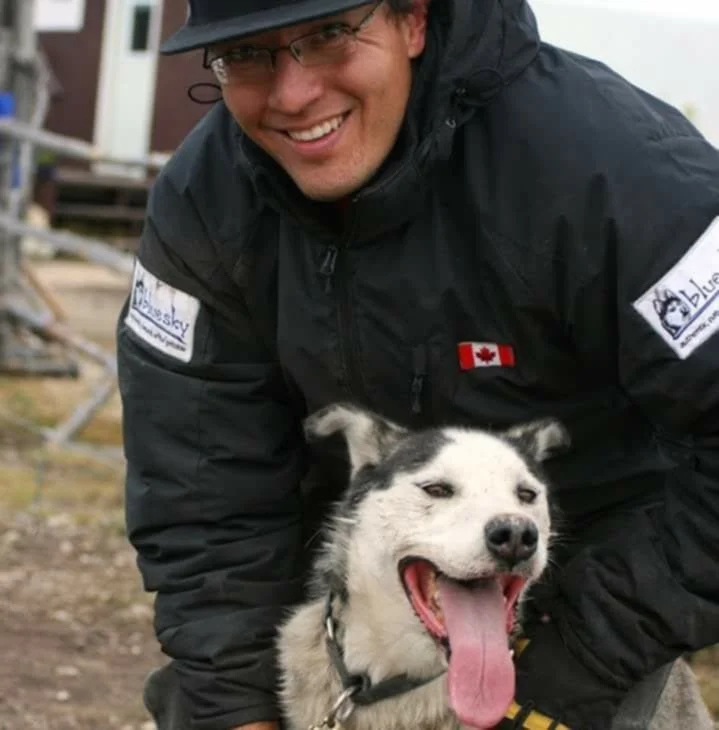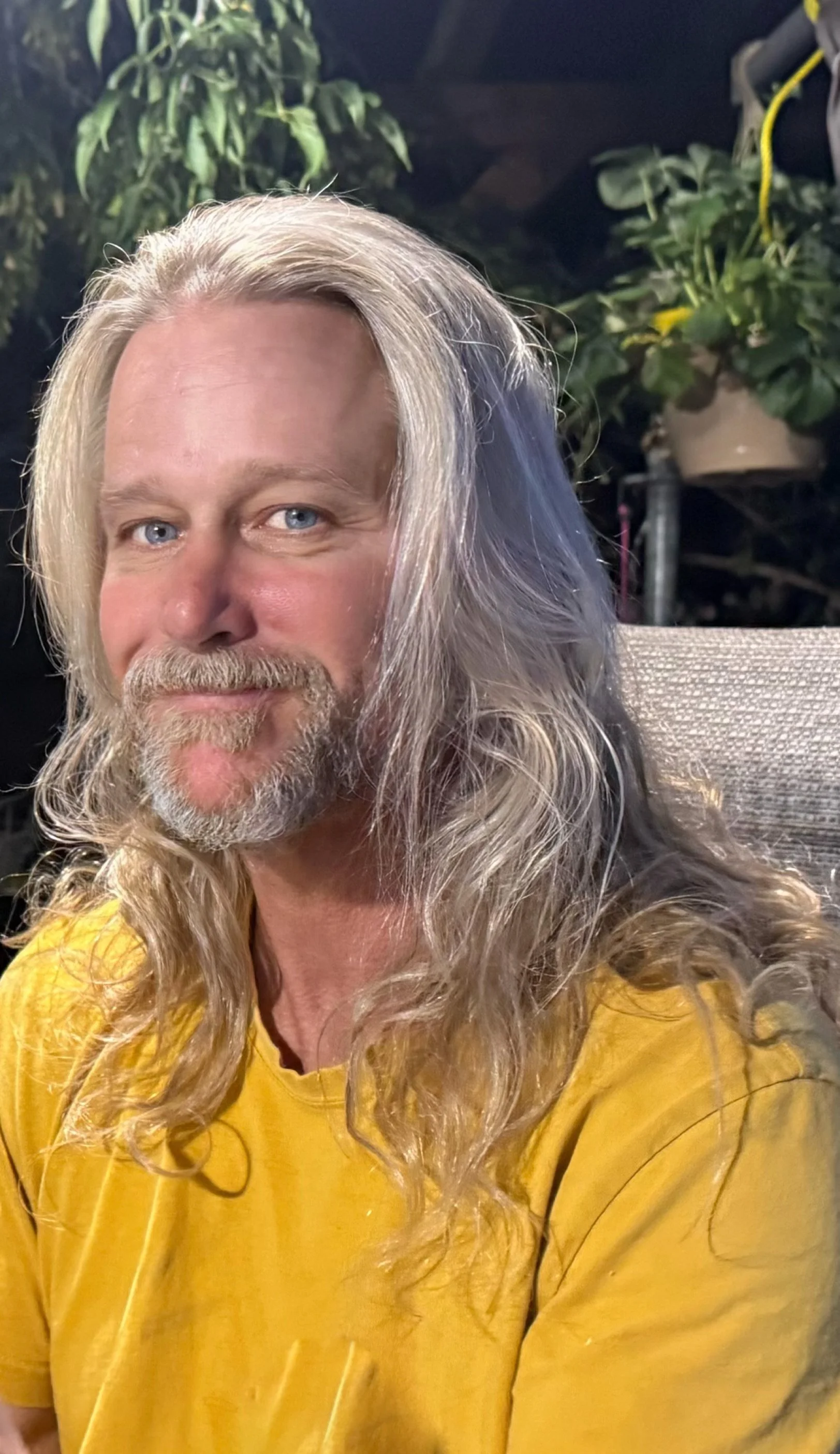Meet The Storytellers
The Elders, knowledge Keepers and storytellers hold a special place in our world. They are the keepers of wisdom, culture, and tradition, guiding us through adventures with stories, teachings, and life lessons passed down through generations. Their voices help shape our understanding of who we are and where we came from. They invite us all to listen, learn, and carry their knowledge forward with respect and gratitude. Their stories are not just part of the past, they are the way of our future.
-

James Cardinal - Bellis, Alberta
Elder • Métis Knowledge Keeper • Language Champion • Musician
Jim (James A.) Cardinal is a proud Métis man from Kikino Métis Settlement and a citizen of the Métis Nation within Alberta. After a 43.5-year career as a Welder with Suncor, Jim retired in 2016. His deep commitment to community and kinship did not end there — from 2018 to 2023, he served as President of Métis Nation of Alberta – Region 1, where he worked to strengthen Métis voices and uphold relationships grounded in respect, collaboration, and care.
A gifted musician, Jim is widely known for his country and gospel singing. Whether performing with the Nicely Put Together Band — a group he has led for over two decades — or offering songs at funerals and community gatherings, Jim shares his voice in ways that bring comfort, healing, and connection. His music, like all aspects of his life, is an expression of relationally rooted in Cree values.
Jim is also a familiar voice across Alberta as a radio host on CFWE. He hosts a weekday show from 11:00 a.m. to 2:00 p.m. and co-hosts Conversational Cree alongside his wife, Dr. Evelyn Steinhauer every Wednesday morning. This 30-minute segment introduces listeners to nêhiyawêwin (Cree language) in a warm and accessible way, offering words, phrases, and teachings that reflect the beauty and complexity of the language.
For Jim, nêhiyawêwin is not simply a means of communication — it is a way of being. As a fluent speaker, he lives the language in ceremony, in song, and in the everyday moments that hold family and community together. He often says that “language is foundational to all that we are,” and that within the language we are told how to live. His deep respect for nêhiyawêwin reflects his understanding that it is not only spoken — it is lived. The language teaches us how to carry love (sâkihitowin), how to honour kinship (wâhkôhtowin), how to live with a good heart (miyotêhêwin), and how to help one another (wîcihitowin). These teachings guide Jim in all that he does.
While Jim would never call himself an Elder or a knowledge keeper, as humility is a central Cree value, many turn to him for prayers, teachings, and guidance. He understands that nêhiyawêwin holds thousands of years of knowledge, ecological, spiritual, and relational, and that speaking it is a form of resistance, of remembrance, and of hope. Each time he teaches a word on the radio, offers a blessing at an event, or speaks to his granddaughter in Cree, he is keeping that fire alive. Jim lives according to the Cree worldview, which emphasizes balance, relational accountability, and living in good relation with all of creation. He carries with him the teachings of our natural laws: mîyo- wîcêhtowin (getting along with others), mâmahwohkamâtowin (working cooperatively), manâtisiwin andmanâhcihitowin (respect and mutual respect), kîsewâtisiwin (compassion and kindness), tâpwewin (truth and honesty), and tapâtêyimisôwin and ekâkisteyimisowin (humility). These are not just words — they are ways of living that Jim quietly models through his actions.
Residing near Bellis, Alberta, with his wife Evelyn and their granddaughter Kezlee ,who has lovingly chosen to live with her Papa, Jim continues to live in a good way. Through song, language, and service, he honours the responsibilities that come with community, land, and spirit. He reminds us that language is not lost; it is still here, waiting to be spoken, remembered, and lived, and through his voice, it lives on.
-
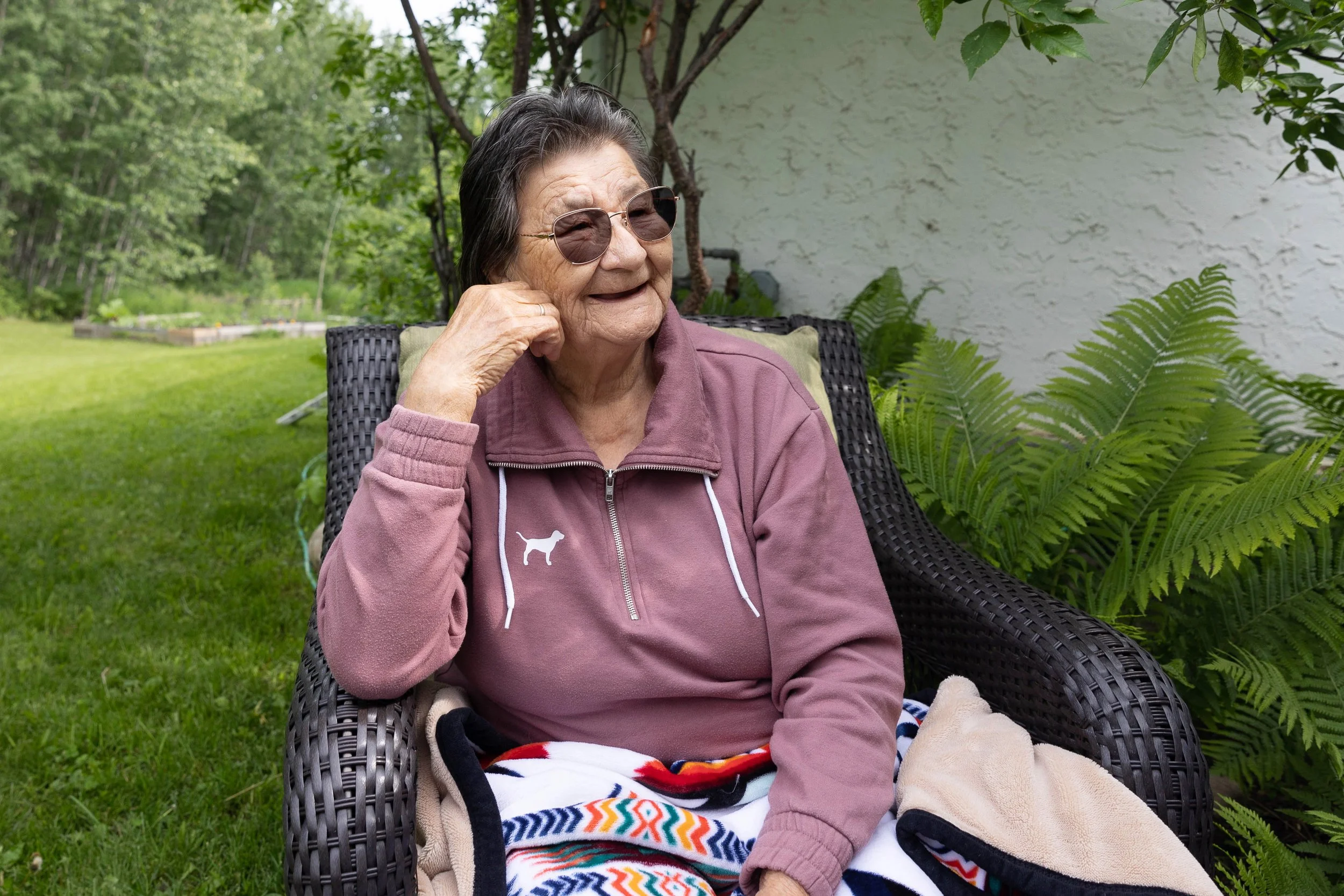
Florence Sundby - Calling Lake, Alberta
Métis Matriarch • Hunter & Trapper • Land-Based Knowledge Keeper
Florence Sundry was born in 1953 and raised in the Martin Hills region of Alberta, where she grew up immersed in the natural world and surrounded by the strength of a large, close-knit Métis family. As one of 14 children, she learned early on the value of hard work, sharing, and resilience. Life on the land taught her how to live with purpose and integrity, and those teachings have guided her ever since.
A proud Métis woman, Florence walks with quiet strength and deep cultural knowing. She is a skilled hunter and trapper who has always provided for her family and community with humility, instinct, and respect for the animals and land. Her life is a reflection of traditional ways, rooted in self-reliance, honouring the land, and ensuring nothing goes to waste.
Florence carries the teachings of her ancestors in everything she does. She has lived a life of service, strength, and connection, embodying what it means to live in harmony with nature and community. Her story is one of endurance, pride, and cultural preservation, a legacy that continues to inspire those around her.
Florence is more than a knowledge keeper; she is a living bridge between past and present, ensuring the values and skills of her people are passed on to future generations. She walks in the footsteps of those who came before her, while carving out a path that is uniquely her own.
-

Marina Stewart - Fort Chipewyan, Alberta
Elder • Traditional Knowledge Keeper • Land-Based Educator • Residential School Survivor
Marina is a respected Elder and proud Cree woman originally from Big Point, Alberta. She was raised by her Nikâwi (mother) and Nôhtâwiy (father), who taught her how to live in harmony with the land and to always give thanks for what was provided. From a young age, she was taught that when she was thirsty, water would be there. When she was hungry, the land would provide. But nothing came without responsibility; everything was to be respected, never taken for granted, and always honoured with prayer.
Her Nikâwi was a deeply wise woman who knew the language of plants and passed on the teachings of their medicinal gifts. From her, Marina learned how to harvest berries, dry fish, preserve moose meat, and use hides to make slippers and other essentials. Her Nôhtâwiy taught her the practical and spiritual skills of trapping, hunting, skinning, and how to carry water from the frozen lake, a full circle education grounded in love, knowledge, and survival.
To Marina, the land is not just a place; it is a sacred teacher, a gift from the Creator, and a reflection of divine brilliance. She has carried these teachings with her all her life and now lovingly passes them on to her grandchildren. Through her guidance, her culture, language, and traditions continue to live on.
Marina embodies the wisdom of her ancestors, rooted in gratitude, generosity, and the quiet strength of those who came before her.
-
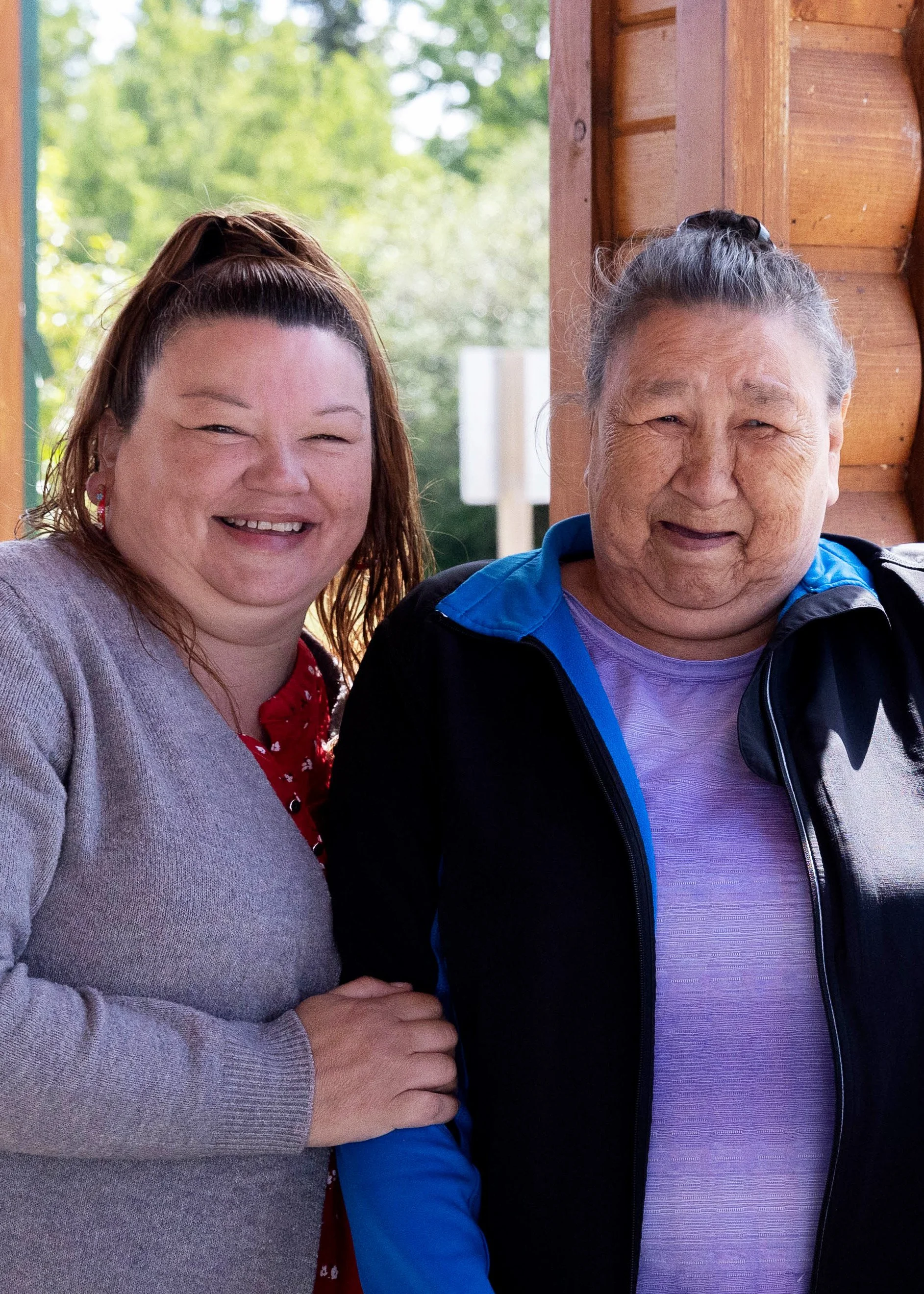
Pricilla Cardinal and Adeline Cardinal - Calling Lake, Alberta
Traditional Knowledge Keeper • Land-Based Educator • Matriarch
Priscilla Cardinal is a proud Cree woman from Calling Lake, Alberta, where she was born and raised on the trapline. Her earliest teachings came from the land itself, through hunting, trapping, harvesting, and the powerful stories passed down by generations before her. From a young age, she learned not only how to survive in the bush but how to live with purpose, humility, and deep respect for Mother Earth.
Priscilla is married to a trapper and hunter who, like her, was raised in the traditional ways. Together, they’ve built a life rooted in land-based traditions, passing down their knowledge to their four children and seven grandchildren. Their home is a place of teachings, stories, and connection, where every generation learns the value of hard work, kindness, and cultural pride.
For Priscilla, the bush life isn’t just a way of living, it’s a way of being. It offers peace, purpose, and the freedom to live in alignment with natural cycles and ancestral wisdom. Whether she’s sharing stories around the fire, teaching her grandchildren to set traps, or walking through the bush in peace, Priscilla embodies the strength and spirit of her people.
She continues to honour her roots by living the traditional life and ensuring that the knowledge she carries is passed on. For Priscilla and her family, this is the good life, the best life, and one worth protecting for generations to come.
-
Marvin Lizotte - Yellowknife, NWT
Knowledge Keeper • Cultural Advisor (Land-Based Learning) & Expedition Leader
Marvin Lizotte grew up on a family farm in Buttertown, Alberta, along the banks of the Boyer River. From an early age he hunted and trapped with his dad Norman Lizotte and learned to read the land. After Rocky Lane School, he studied Outdoor Education at Augustana and the University of Alberta. The mountains called him into a life of guiding, first as a whitewater raft guide in the Rockies and, for many moons now, as a dog sled guide. He went on to build and run his own rafting and mushing companies, guiding guests across Canada and abroad. Active in First Nations ceremonies and teachings, Marvin lives in balance, physical, mental, emotional, and spiritual, guided by the medicine wheel. His first experience with sled dogs came through his cousin, Cizza, a connection that still shapes his deep respect for the animals and the land. Wherever he works, Marvin brings calm leadership, cultural humility, and a commitment to sharing the land safely and responsibly.
-

Beverly Lambert - McLennen, Alberta
Métis Cultural Knowledge Keeper • Land-Based Educator • Community Storyteller.
Beverly Lambert is a proud Métis woman from Gift Lake, Alberta, whose life has been profoundly shaped by the teachings of her grandparents, Raymond and Amy Laboucan. Raised between the Métis settlement and the town of McLennan, Beverly grew up surrounded by traditional knowledge, cultural practices, and a love for the land.
Her Moshum taught her how to hunt, fish, track animals, set snares, and harvest respectfully from the land, always giving thanks and taking only what was needed. Her Kokum passed down the skills of berry picking, plant medicine, canning, smoking meat, and using every part of an animal. Beverly learned that nothing was ever wasted, and everything had a purpose.
From a young age, Beverly understood that she wasn’t just helping, she was being taught something sacred. The teachings she received weren’t just about survival; they were about living in harmony with nature, honouring ancestors, and keeping Métis traditions alive.
Today, Beverly continues to carry these teachings forward through community involvement, storytelling, and land-based education. Her life reflects the values her grandparents lived by: gratitude, respect, laughter, and love, and she shares their legacy so it will live on in future generations.
-

Margaret Davies - Faust, Alberta
Métis Herbalist • Knowledge Keeper • Land Steward.
Margaret “Chilly” Davies is a proud Métis woman living a quiet, life on the land her family has called home for generations in Faust, Alberta. She lives simply without running water or electricity and wouldn’t have it any other way.
Her journey into plant medicine began when she was 18, and she’s been learning ever since. Chilly believes everything we need to heal is already here, growing around us. With deep respect for the land, she gathers herbs like yarrow, raspberry leaf, mint, and rat root, using them to make teas, pastes, and natural remedies for common illnesses.
Chilly is generous with her knowledge. She teaches others when to harvest, how to prepare medicines, and most importantly—how to honour the plants and take only what you need. Her life is rooted in gratitude, tradition, and love for the land and the people who came before her.
For Chilly, this isn’t just about medicine. It’s about remembering, sharing, and keeping something sacred alive.
-
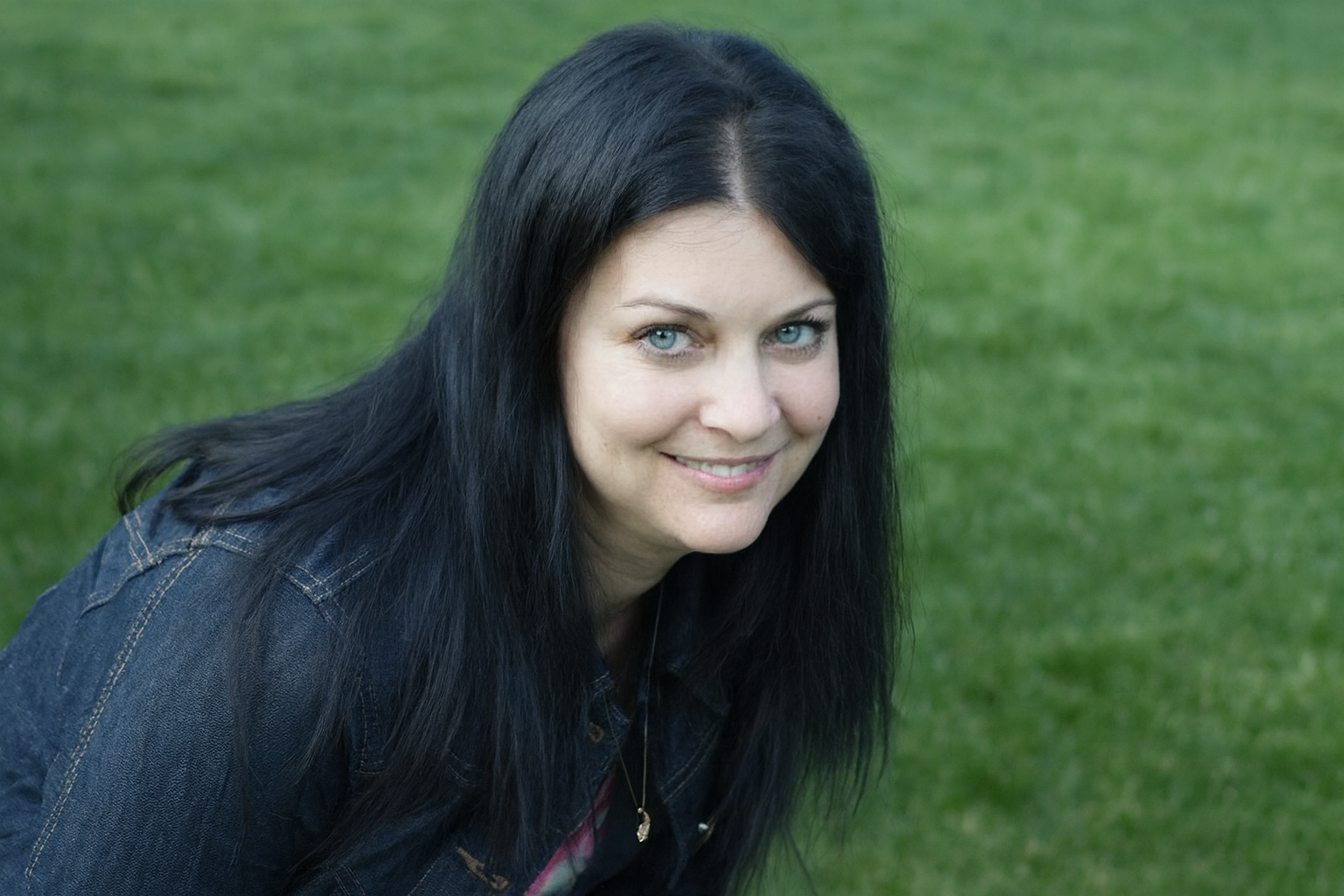
Dr. Jacqueline (Humm) Senych - Redwater, Alberta
Métis Knowledge Keeper • Medicine Woman • Residential School Survivor • Doctoral Nurse •
Born in Alberta and moving with her family to the Northwest Territories, Jacqueline’s childhood was forever changed when she and her three siblings were taken from their home. She and her brother Jeffery were placed in the same residence but in separate buildings, Jacqueline in the girls' house and Jeffery in the boys' house, which also housed the youngest children and was run by nuns. They could see each other in the yard, but were never permitted to spend time together outside of it. The two youngest siblings were never seen there. Once, a nun asked Jeffery if he wanted to see his baby brother, but the boy Jeffery was shown was not him. Jacqueline often asked for her parents and was repeatedly told they were bad and that they needed to live in the receiving home, but she knew this was untrue as she was the oldest and held the memories of her life outside of residence.
Their grandfather, Jack Fraser, hired a lawyer in Alberta to bring them home. Though they would never return to their parents' home as they knew it, Jacqueline and Jeffery were eventually placed on a plane to Alberta, where they went to live in Newbrook with their grandmother and grandfather. Their father also returned to Newbrook, living once again in his family home to be with his two oldest children.
Newbrook was a place where community care was woven into daily life. Jacqueline’s grandmother was both postmaster and healer, running the post office from her home and preparing medicines in her kitchen. When a community member presented with diabetes, a nurse from another town came to her grandmother's house to show her how to give insulin with the prefilled syringes that they had left for the elderly male who would come each morning for his injection. Jacqueline's grandmother taught her how to give this injection as sometimes, when the man came for his shot, her grandmother would be busy at the wicket in the post office and this allowed them both to provide this service. Her grandmother also operated the local clothing depot, where families brought clothing to exchange. Children would choose outfits for the school year from the bags brought in, proudly passing on their own outgrown clothes to others. Clothes were never thought of as “secondhand” – only new to the one who wore them next. Worn-out garments were repurposed into quilts by a local Indigenous woman, an expert in stitch, ensuring nothing was wasted and sold at the post office to whoever required a new blanket.
From these beginnings, Jacqueline’s path to nursing was set. She started as a health care aide, then became a Licensed Practical Nurse, a Registered Nurse, and eventually earned a Doctoral degree. Today, she blends evidence-based care with the traditional knowledge she learned in Newbrook, always guided by the values of sharing, caring, and resilience.
She is fortunate to have four wonderful parents now. Her father remarried to a local woman who is known as “Grandmother” – an expert in beadwork, making mukluks and other garments from her father's hunted hides, and the best moose stew cook ever. Her father, known as “Grandfather,” is a trapper, hunter, fisher, carpenter, and a patriarch of the community, helping and feeding anyone in need. Her mother remarried a wonderful man who values family and friends. He was also an avid hunter and fisher. Her mother values family and often cares for her great-grandchildren when required, staying closely connected to her three remaining children, as sadly, the youngest had passed. The four parents remarkably became friends and have travelled together, shared many laughs and sadness, and today gather for all traditional holidays, keeping the community and family spirit together. Today, Jacqueline and her husband cherish time with their very large family. Their four children, spouses, and grandchildren are included in all aspects of life, whether in everyday gatherings or special occasions. Family remains at the heart of everything Jacqueline does, carrying forward the same spirit of sharing, resilience, and community she was raised with -
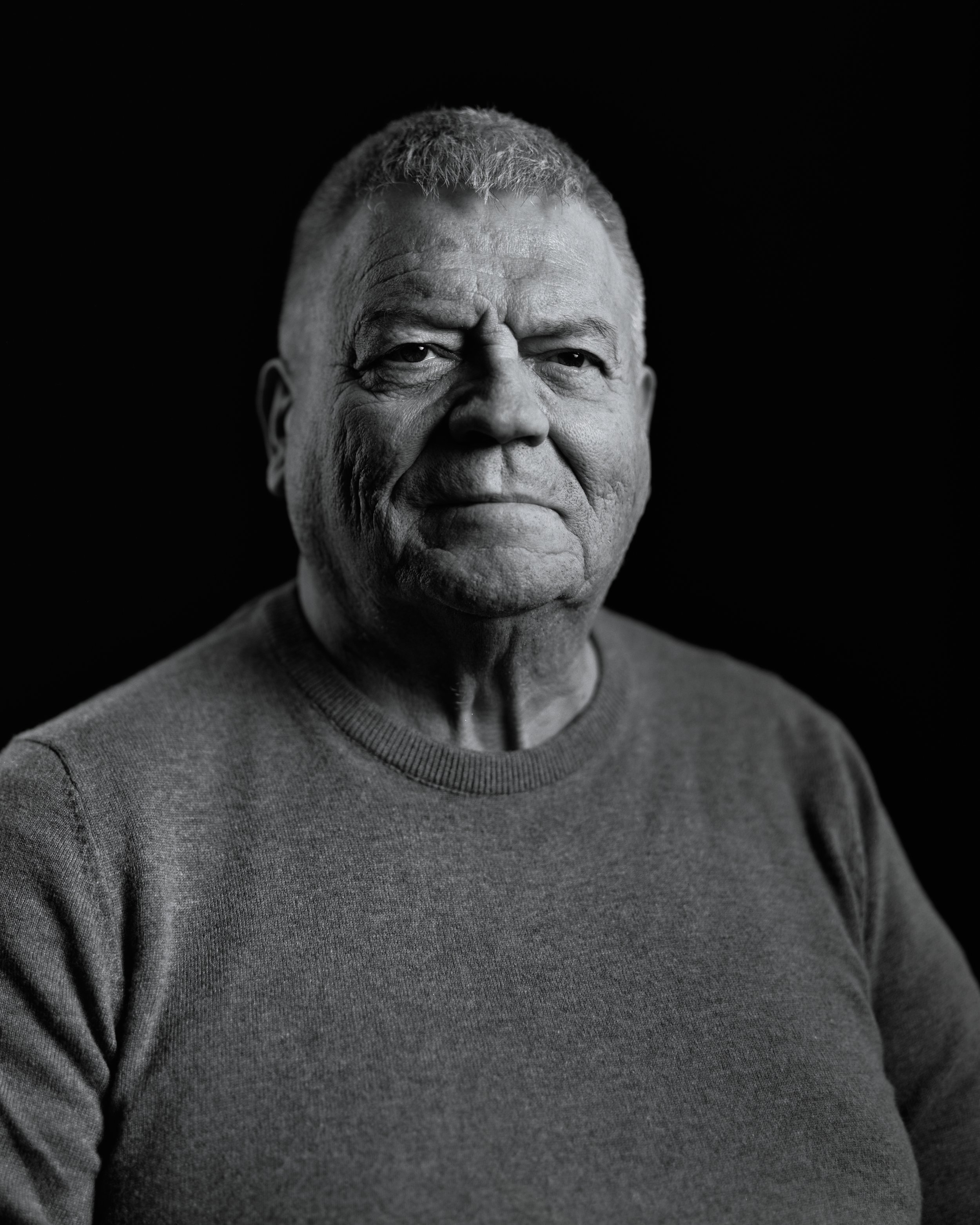
Arthur Cunningham - Calgary, Alberta
Elder • Knowledge Keeper • Community Leader
Elder Art Cunningham is a proud Métis Elder who has spent his life helping people build understanding, respect, and meaningful relationships between Indigenous and non-Indigenous communities. With more than 35 years of experience, he brings people into connection, where everyone is invited to listen, learn, and grow together.
As the President and Knowledge Keeper of Roundtable Consulting, Art travels across Canada to support meaningful reconciliation and share Indigenous knowledge in ways that build trust, integrity, and long-lasting partnerships.
Earlier in his career, he spent nearly four decades in the energy sector, where he guided corporate leaders in building respectful, enduring relationships with Indigenous Nations. His ability to bridge worldviews has helped shape how industry, government, and Indigenous communities work together across Alberta and beyond.
His deep care for future generations was embodied through his work with Métis children and family services, where he hxsas helped create safe, culturally grounded spaces that honour the health, identity, and safety of Indigenous families, children, and Elders.
Art humbly serves as a Knowledge Keeper in many important spaces, including with the Métis Nation of Alberta, Métis Crossing, the City of Calgary’s procurement team, the Circle of Wisdom Elders and Seniors Centre, and the Calgary Chamber of Commerce’s Aboriginal Opportunities Committee. He has also supported the United Way and the Calgary Aboriginal Women’s Shelter, always centring Indigenous voices and values in the work he does.
Although he has received many awards including the Chief David Crowchild Memorial Award, the Paul Harris Fellowship Award, and the Alberta Centennial Medal, Elder Art believes the greatest honour is being trusted to share knowledge and help others walk their path with courage, humility, and heart.
Through his stories and teachings, Elder Art reminds us that when we care for one another, remember where we come from, and walk in a good way, we help build a better future for all.
-
Jeff Humm - Redwater, Alberta
Métis Knowledge Keeper • Hunter • Master Carpenter • Residential School Survivor
Jeffery is a Knowledge Keeper, hunter, and master carpenter from Alberta. As a child, he and his sister, Jacqueline, were taken from their family and placed in a residence in the Northwest Territories. Life on the boys’ side was harsh, and older boys often targeted the younger ones. Even then, Jeffery looked for his sister in the yard, holding on to the hope that they might leave together.
Jacqueline tried. Once, she hid him in the back seat of a car when the gate was open; another time, under her bed in the girls’ house. Both attempts were discovered, and Jeffery was returned to the boys’ side, experiences that left deep marks, shaping his resilience and anger through his school years. He also spent two years at St. John’s Boys’ School, a horrible and abusive institution.
Back in Alberta, he struggled to adjust and was expelled from county schools. A Scared Straight program became a turning point. Through hard work and perseverance, Jeffery found his path in the trades, becoming a skilled carpenter known for concrete and decorative concrete stamping, craftsmanship that reflects both strength and beauty.
Jeffery’s life is rooted in land and family. He grew up working the trapline with his father and grandfather, learning stewardship, survival, and the responsibility to provide. As a Knowledge Keeper and hunter, he provides for his community: each year he and his brothers organize a family hunt, set up camp, guide the expedition, and share the harvest so every household has meat for the freezer.
Today, Jeffery, his wife, and their two adult children carry these traditions forward, honouring the land, culture, and family ties that sustained him. His story is one of survival and service: a Knowledge Keeper who turns hardship into guidance, and a hunter whose hands still provide.
-
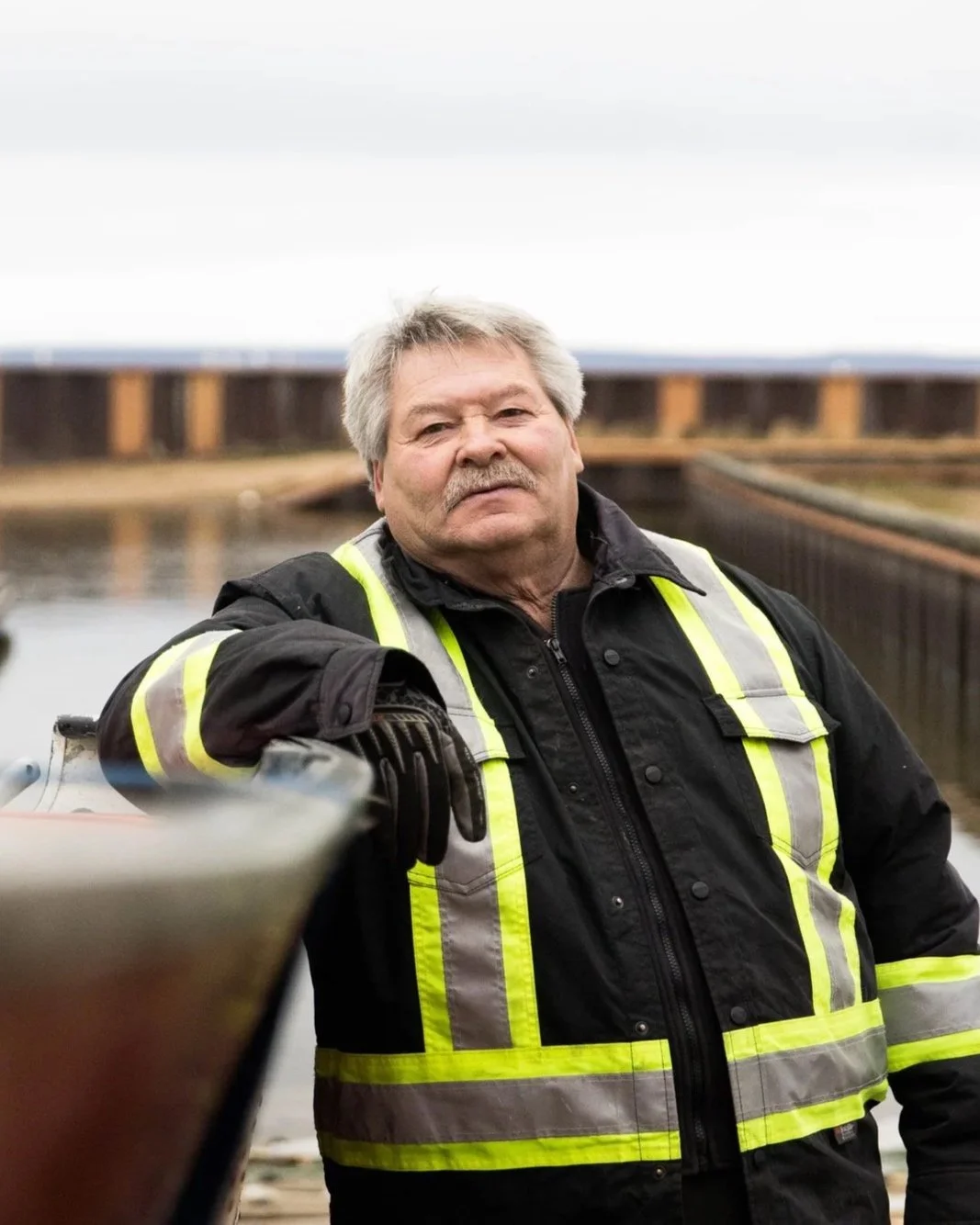
Gerald Jackson - Canyon Creek AB
Knowledge Keeper • Community Provider
For more than forty years, Gerald has greeted the sunrise on Calling Lake, setting his net with patience and care. He fishes year-round and brings the catch home to Canyon Creek, where family and neighbours gather to cut, smoke, and share the fish. Gerald gives first to Elders and to anyone in need, delivering to those who are unwell because he was raised to believe we take care of one another. He never accepts money; giving is the teaching he carries.Gerald honours the memory of his kokum, Rachel (Fraser) Courtorielle , a respected midwife, healer, and master moose-hide tanner who raised her own children and those who needed a home. Her generosity and strength guide Gerald on the water and in the community. he is always reminded of her teachings: work with the land, share what you have, and lead with a generous heart.

